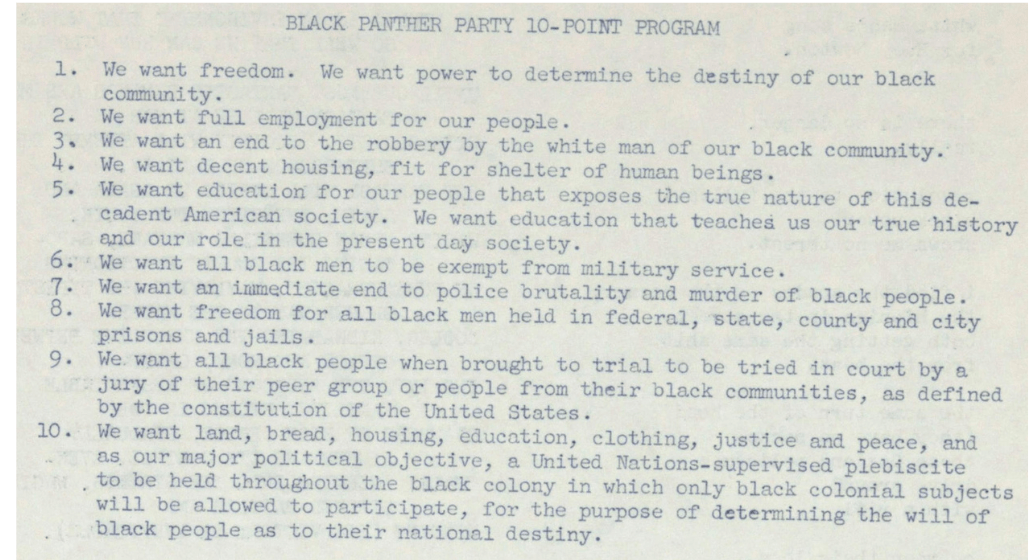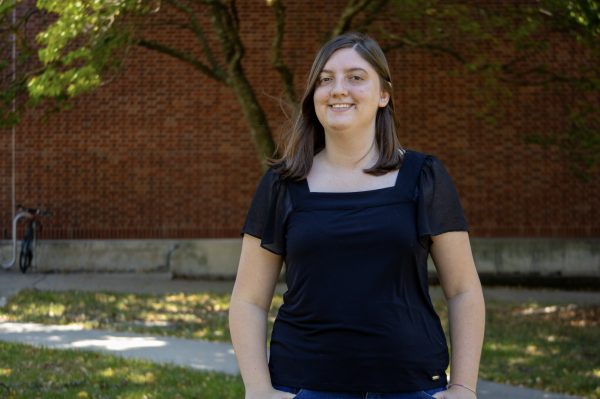On Wednesday, Feb. 1, Drake hosted a panel to discuss the Black Panther Party’s Des Moines chapter and its lasting impact.
The panel included state Rep. Ako Abdul-Samad, a former lieutenant in the Des Moines chapter, who was able to tell a first-person account of some of the chapter’s history.
Other panelists included Carmen Lampe Zeitler, the former executive director of Des Moines non-profit the Children and Family Urban Movement, and Drake student Candace Carr.
Before the panel, the Director of the Crew Scholars Program, Jazlin Coley-Smith showed a video on the history of the chapter and national organization to help inform the audience for the discussion.
Des Moines has a long history of civil rights advocacy. In 1868, Alexander Clark successfully appealed to the Iowa Supreme Court to allow his daughter, Susan Clark, to attend an all-white school. The desegregation of the Katz Drug Store in 1949, led by Edna Griffin, utilized methods that would be used in Greensboro’s desegregation a decade later.
In 1966, tensions in the Black community, notably over segregation, urban renewal that displaced many homeowners and racial discrimination in hiring, led to the Good Park rebellions. The rebellions began after police attacked young Black people after curfew at the park, only blocks from Drake’s campus. The rebellions led to a shift towards bolder methods of civil rights advocacy.
“And that led to some attention on how Black people were treated at the time, in the ‘60s, the tension between the police and the Black community,” Coley-Smith said about the rebellions. “And Mary Rhem and Charles Knox were like, ‘Okay, we need to start some sort of organization.’”
Charles Knox and Mary Rhem officially founded the Black Panther Party Des Moines chapter in February of 1968 to address the problems the Black community faced during this time.
The chapter, while still connected to the national branch, focused on local issues. In addition to the 10-point program of the national branch, the branch had a 16-point program relating specifically to education. Many of the members were illiterate, so the founders began a literacy program.
Other chapter initiatives included a free breakfast program for children in need, at first out of homes of involved women and later out of the Trinity United Methodist Church.
“When it came to the feeding program, the key with that was [to] make sure they have a healthy breakfast,” Abdul-Samad said. “I mean, we had pancakes, waffles – back then, we had vegetarian sausage.” According to Abdul-Samad, at one point, the program was providing for 300 children.
In addition to breakfast, the program provided the children with both books and lessons about politics. The chapter also organized a service to drive community members to a rehabilitation center in Kansas City as Des Moines dealt with a drug addiction crisis.
In 1969, an unknown perpetrator bombed the chapter’s headquarters, demolishing the building and around 50 homes in the area. The headquarters were in the Drake neighborhood on University Avenue, and the bombing occurred during the Drake Relays.
The police, who arrived shortly after, arrested four men on the scene and put out a warrant for chapter founder Charles Knox. According to the Des Moines Register article published shortly after, the Black Panthers accused the police, while police accused the Black Panthers of bombing their own headquarters.
In 1970, the chapter officially cut ties with the national Black Panther organization. Founders Knox and Rhem worked with the Black Revolutionary Communist Youth to continue discussing political issues.
While the chapter officially disbanded when it cut ties to the national organization, its legacy is still visible in Des Moines. The free breakfast program is still running, 50 years later, with CFUM.

Coley-Smith, who moderated the 2023 panel, organized the event after the success of a previous panel about the chapter in 2020. One hundred sixty people attended, and according to student feedback she received, it was extremely impactful to attendees.
She got the idea for the event while researching how Black and brown students perform community service, which, as she found in her research, is typically not acknowledged as such work. While researching, she began reading about the Des Moines Black Panthers and their work.
“A lot of people don’t know this information intentionally. They don’t have access to this information,” Coley-Smith said. “So we decided to do an event that highlighted the Black Panthers and chapter here, connecting service and the work they did here while they were active in Des Moines.”
Throughout the meeting, the panelists urged the audience to get involved in the local community through volunteer service. The panelists listed ways to get involved, such as through CFUM or other programs. Abdul-Samad said that he doesn’t see Drake students volunteering their time to their community.
“How many of you have crossed 24th street and came down to Creative Visions, come down to Urban Dream, come and worked in the community itself?” Abdul-Samad said. “I’ve been on this campus speaking to your issues for a long time, for decades. I ain’t seen y’all in my community.”
Carr noted the need for a shift to a culture of care, describing mutual aid boxes around the city that students could donate to.
“If you have the facilities, the capacity, the money, the time,” Carr said. “As much as we say we’re so busy, Drake Busy, we have the time.”








